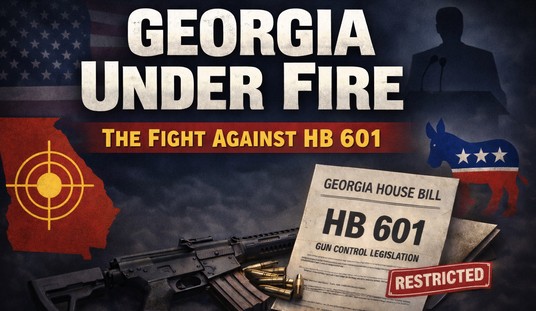
Pennsylvania has blocked residents of the state from accessing downloadable digital blueprints posted to the internet that would allow them to create semiautomatic firearms that are untraceable using 3-D printers.
Here at Bearing Arms, ghost guns have been a topic of conversation as gun control proponents ramp up their efforts to regulate them; they fear the blueprints for making these 3-D printed firearms present a public safety risk.
Furthermore, these activists, along with various state officials and law enforcement officers, believe these blueprints can, and will, fall into the hands of criminals who will create guns to use in future crimes. Another concern is that the firearms don’t have serial numbers, making them untraceable. Once the blueprints are on the internet, they argue, there’s no stopping prohibited individuals from accessing the information.
In light of these concerns, Pennsylvania’s attorney general, Josh Shapiro, successfully blocked residents of the state from accessing the company Defense Distributed’s downloadable files on Sunday.
Cody Wilson, a guns rights activist and the founder of the company, has faced various lawsuits and legal threats from the federal government, states, cities, and organizations for the schematics. However, Wilson successfully defeated the State Department’s lawsuit, allowing him to continue to distribute his files to anyone who wants them.
Initially, the federal government tried to sue Wilson and Defense Distributed to prevent them from putting the data online. Meagan Flynn of the Washington Post reports:
In June, the State Department settled a lawsuit ending five years of litigation over Defense Distributed’s “printable guns.” The federal government had previously argued that Wilson’s weapons blueprints amounted to exports under the International Traffic in Arms Regulations (ITAR), in violation of federal law. But in June, the State Department authorized Defense Distributed to go forward with its plans as part of the settlement, opening the door for the company to provide access to its gun-making instructions by Aug. 1. A department spokesman told The Washington Post that proposed rule changes for U.S. munitions “would eliminate ITAR requirements at issue in this case.”
In her report, Flynn notes that, though Shapiro was able to block residents from accessing the files, the state was unable to prevent everyone from seeing them, as more than 1,000 people were able to download the blueprints before the blacklist.
Wilson’s lawyer seems optimistic that all Pennsylvanians will be able to get their hands on the files soon, as the federal government has already given Wilson permission to upload them to the internet. States and cities can’t regulate the web, and Wilson and his lawyer argue that any attempt to prevent Wilson from releasing the blueprints to the public violates his rights to engage intrastate and interstate commerce, free speech, and bear arms.
However, early Monday afternoon, House Rep. David N. Cicilline (R-01) released a statement saying he will introduce a bill that will ban 3-D printed guns entirely.
The statement, in part, reads:
Downloadable guns can be used to circumvent national or state laws that help prevent possession by people that pose a danger to others and themselves. Through downloadable gun technology, any person can print their own firearm without having to go through a federally licensed dealer and without ever having gone through a criminal background check – including domestic abusers, terrorist, and convicted felons. Gun blueprints also enable the printing of purely plastic guns that will not set off a metal detector and can be snuck into secure locations, such as government buildings and airplanes.
NEW: Rep. Cicilline to introduce bill banning 3-D printing of guns: "The Trump administration’s decision will open the floodgates and allow anyone with access to the internet and a 3-D printer to possess a firearm…This is a disaster waiting to happen." https://t.co/dUJssaSjVm pic.twitter.com/gyhYzHJu76
— ABC News (@ABC) July 30, 2018
Seven states — Washington, New York, New Jersey, Pennsylvania, Oregon, Connecticut, and Maryland — along with Washington, D.C., are also filing a lawsuit against the federal government to ban ghost guns.
U.S. states make last-minute legal bid to halt 3-D online guns https://t.co/Vnvo9VrJzx
— Reuters (@Reuters) July 30, 2018








Join the conversation as a VIP Member